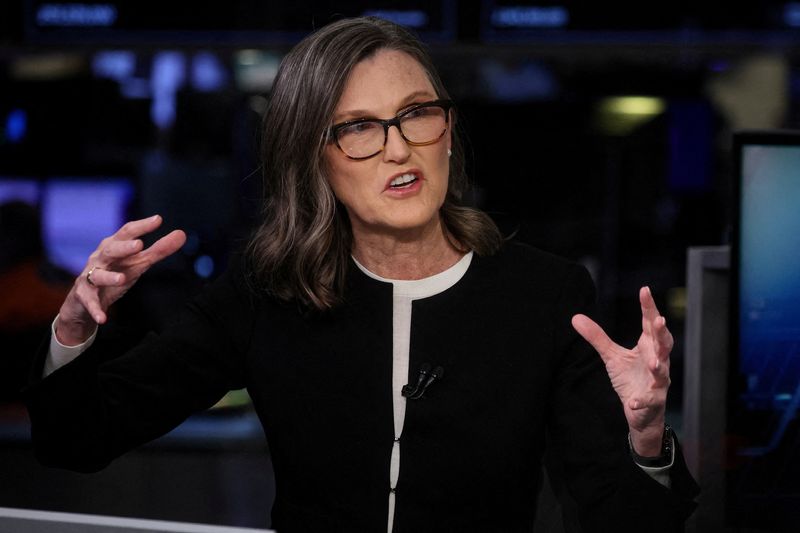By Suzanne McGee
(Reuters) – Cathie Wood, founder and CEO of ARK Investment Management, defended the strategy of the firm's loss-making flagship fund, writing to investors in a letter published on Wednesday evening that the tide will turn as interest rates fall.
The ARK Innovation ETF fund has taken investors on a rollercoaster ride in recent years. After gaining 67.6% in 2023, the ETF is down more than 12% so far this year. That compares with a 16.9% gain for the S&P 500 index so far in 2024, which closed above 5,600 for the first time on Wednesday.
According to data from VettaFi, ARK's ETF has seen net outflows of more than $1.8 billion over the past six months.
In a letter on ARK's website, Wood wrote that she fully recognized that “the macroeconomic environment and some stock selections have jeopardized our recent performance.” Nevertheless, she added, “our conviction and commitment to investing in disruptive innovation have not wavered.”
According to data from LSEG, ARK's top investments as of May 31 were Tesla, Coinbase and Roku.
Wood argued that many of the fund’s holdings were now in “rare, deep value territory” and would benefit disproportionately once rate cuts began. She expected another blockbuster period of returns that would mimic the fund’s 152.8% gains during the early stages of the coronavirus pandemic.
“If we exit our strategies now, we crystallize losses that lower interest rates and reversion to the mean should convert into meaningful profits over the next few years,” Wood wrote. “We are determined!”
ARK did not immediately respond to a request for further comment on the letter.
Morningstar, a Chicago-based investment analysis firm, calculated earlier this year that ARK’s losses wiped out $14.3 billion in shareholder value over the 10 years ending Dec. 31, 2023. ARK and Wood did not respond to requests for comment on that report.
Wood believes the key to future returns will lie in investments in artificial intelligence, but not necessarily in the market's darling Nvidia and other mega-caps.
In the letter, she said she expected “a more diverse group of winners would emerge, replacing the current concentration in the stock market.”
(Reporting by Suzanne McGee; Editing by Jamie Freed)

